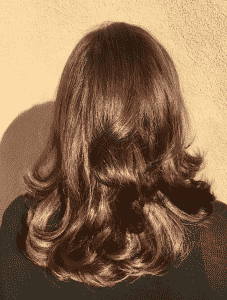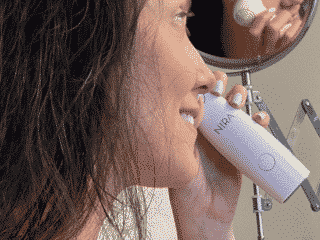
Stress
Stress can have a wide range of impacts on your physical condition, and this can include your hair. When this happens, you will typically notice your hair getting a lot thinner and, indeed, it might begin to fall out in patches, which can make it seem overly noticeable. This type of hair loss is called telogen effluvium. It is, in most cases, temporary. There are over-the-counter medications that can help you manage your hair growth, but in the long term, addressing your stressors and finding ways to manage and cope with your stress is the best way to prevent this from happening.
A family history
While stress-related hair loss might be the type that can potentially affect most people, the most common cause of hair loss, by some margin, is down to genetics. Hereditary conditions such as androgenic alopecia trigger hair loss as you get older, usually through receding airlines and bald spots, and it affects men and women differently. This type of hair loss is not usually temporary or reversible, and while you can care for your hair to keep it healthier for longer, you might want to start looking into options such as hair restoration cost, so you can begin to plan to restore your head of hair via other means. If you’re concerned, take a look into your own family history for patterns of hair loss, to give you an idea of what you should start preparing for.
Damage to your hair
Just because you’re getting treatment provided by experienced and licensed professionals at a salon doesn’t mean that you’re taking good care of your hair’s health. Their priority is helping you maintain the aesthetic that you want, and sometimes that can involve using products and processes that do your hair more harm than good. For instance, any treatments that use chemical relaxers, keratin treatments, or bleach have the potential to do harm to your hair, as do chemical perms. Overexposing your hair to heat, such as by using straighteners on it often, can also damage your hair and make it much more likely to break. You have to know the risks of the hair treatments that you ask for and, if you’re already experiencing some signs of hair loss or thinning, you might want to cut them out.
Lack of nutrition
If you find that your hair is breaking a lot more than usual and you’re picking out strands but it’s not due to any kind of damaging hair treatments you might have been undergoing, then it could be the case that you’re not giving your hair the nutrition that it needs. A lack of the necessary nutrition, including protein, vitamins C and E, and beta-carotene, is going to make your hair grow much weaker which, in turn, will make you much more susceptible to breakages, to the point that it starts becoming noticeable. This is particularly common for those who go on “cleanses” or fasting diets that don’t include enough of the nutrition they need, despite their purported health benefits.
Changes to your hormones
Any changes to your hormones can result in changes to your hair, as well, because hair growth is highly dependent, to a degree, on a balance of hormones. For women, they may find that the times this most commonly happens is during pregnancy, though post-partum hair loss is even more common, and it can happen during menopause as well. Men can find that they may experience hair loss after testosterone replacement therapy. Usually, hormone-related hair loss is temporary, and your hair is likely to grow back, normally, after your hormones have returned to their usual state. That said, doctors can usually provide forms of treatment such as topical creams to address hormone-related hair loss, at the same time.
Using some medications
If you are taking any medications to treat health issues affecting you, whether they are acute or chronic, then you should also be aware of the side effects that come with those medications. Many of them will have them written on the bottle but, if you want to see whether or not your chosen medication has some history of causing hair loss, then you can always research them online to see if anyone has been having the same problem as you. There are plenty of medications that may cause hair loss, including some of the choices most commonly used to treat depression, inflammation issues like arthritis, blood pressure issues, and more. If you think that the side effects are too much, you can always talk to your doctor about using alternatives.
Radiotherapy
Radiotherapy, or using radiation to treat certain parts of the body directly, can cause hair loss in that specific part of the body. As such, if you have radiotherapy targeting your head or brain, then you are very likely to experience hair loss as a result. This hair loss can be managed, to some degree, such as by treating it more gently when brushing or avoiding any treatments or products that may hurt your hair. Similarly, it’s important to protect your scalp, especially when you are out in the sun, as you may be more prone to problems such as sunburn. Hair that has fallen out due to radiotherapy tends to grow back.
There are several different causes for hair loss, as well as multiple treatments, the effectiveness of which can vary depending on the nature of your particular case. As such, getting some help from a doctor is always recommended.






